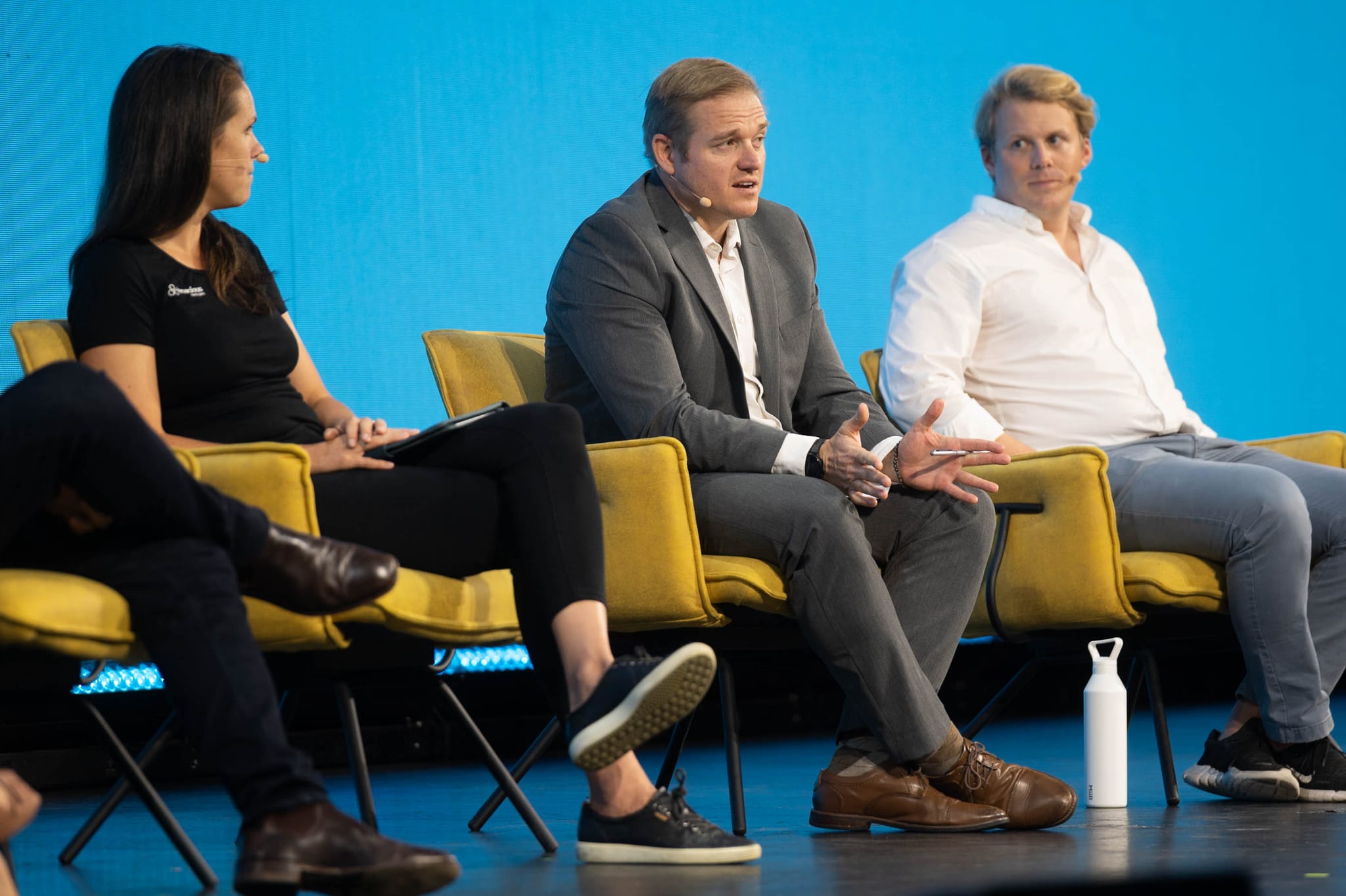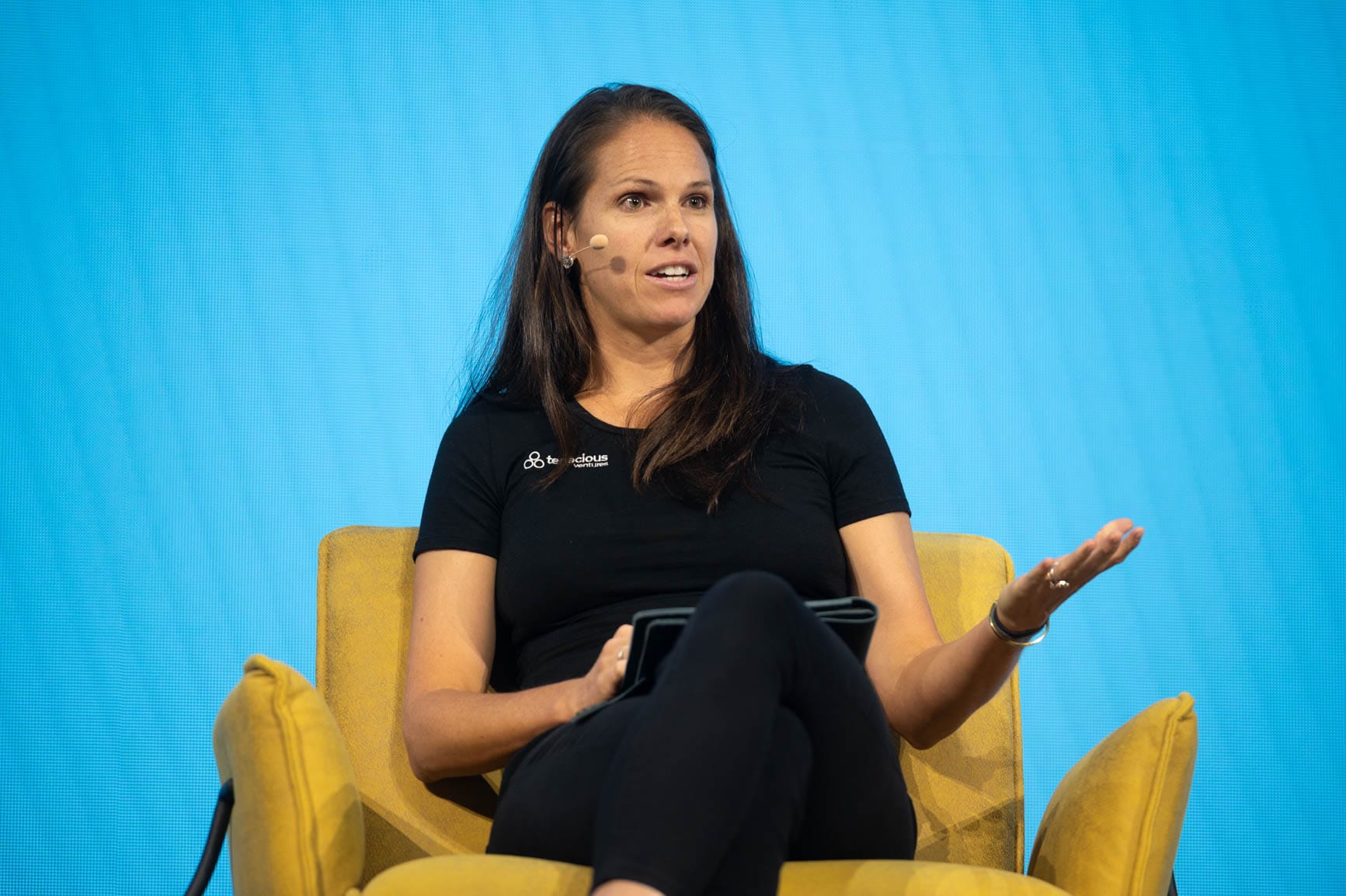Sober, yet hopeful reflections on agrifood tech funding for 2024 and beyond
What do you get when you have leading international agrifood tech venture capitalists (VCs) and top tier private equity investors on a panel? A lot of predictions about the future, of course. But this year a panel at evokeAG. 2024 also spoke openly about their reflections and the stark reality - a downturn in investment, coupled with geopolitical relations and inflation brings further financial headwinds. However, it’s certainly not all bad news. While entrepreneurs don’t have as much money to access from VCs, the overall agrifood tech ecosystem is maturing, with a broader awareness of the sector.
Assessing the investment downturn
Globally, venture capitalists are coming to terms with the 44% year-over-year drop in investment, from 2021 to 2022.
The high global investments of 2021 was dubbed as ‘a banner year’ for agrifood tech.
But Ryan Rakestraw, Director, Temasek, a global investment company headquartered in Singapore, said what we witnessed in 2021 was more of a “bubble.”
A record-breaking $51.7 billion (USD) was invested globally into agrifood tech that year.
However, the Global AgriFoodTech Investment Report 2023 by AgFunder, found only $29.6 billion (USD) was invested in agrifood tech in 2022.
Even still, there have been some bright spots for Australian startups. Cellular agriculture startup, Vow raised $49.2 million (USD) in Series A funding in late 2022, during one of the most difficult periods for venture investing across the board. Meanwhile, carbon farming startup Loam Bio raised a $73 million (USD) Series B in 2023.
RELATED: Aussie agrifood tech investment holds strong: What to expect from AgFunder’s 2024 report
It’s not all about the money
In this current market, it’s worth remembering that innovation in agriculture is not all about the money. A VC firm can also add value through advice, expertise and connections.
Chris Thomas is the Director of Wollemi Capital, a global climate specialist investment firm, with expertise in regenerative agriculture.

Ryan Rakestraw (centre), Director, Temasek. Image | Mr.Wigley Photography.
“We’ve supported over 10, coming up to 15 carbon projects in Australia, across four and a half million hectares,” he said.
Wollemi Capital also co-led the recent investment in Loam Bio.
Mr Thomas said venture capital is a natural fit when supporting software-based solutions but highlighted that agriculture-related startups are often closer to hardware businesses, with physical operations or machinery plants. And this means they have big capital expenditure requirements.
“Venture capital firms are really effective at helping startups in creating their product and getting their first pilot and first commercialisation going but can struggle then when they get to the kind of capex intensity that’s required for scale.
He said different types of funding are required, including project finance and low-cost capital, to help bridge a company towards ‘bankability.’
Facilitating collaborations and partnerships
Venture capital firms can also add value for entrepreneurs by facilitating collaboration amongst the firm’s portfolio companies. Temasek leverages its global network of startups, plus medium and large-sized companies to create opportunities for collaboration.
Then there’s the possible (and potentially lucrative) partnerships with the big food and agriculture corporates. For instance, an agrifood tech startup could benefit by a corporate financing the infrastructure it needs to scale.
However, this comes with potential pitfalls.

Adam Anders, Co-Founder and Managing Partner, Anterra Capital. Image | Mr.Wigley Photography.
Adam Anders, Co-Founder and Managing Partner, Anterra Capital, a VC firm based in the Netherlands and the US, said partnering with corporates is important, but the relationship needs to be clear.
“It’s not my first point of advice to move a founder towards taking corporate capital,” he said.
“You’ve got to be careful distinguishing between who your customers are, versus your partners, versus your investors.
“Calling a customer a partner when they are actually paying for your service or ultimately might be acquiring your business creates either an actual conflict of interest or even if it’s well-structured and well-meaning, creates a perceived conflict of interest.”
RELATED: No more unicorns; Why AusAgritech president is calling 2024 the ‘year of the cockroach’
So, what’s on the horizon?
For the immediate future, the VCs on the panel all agree; times have changed for agrifood tech entrepreneurs.
Robyn O’Brien, Partner at Montcalm, an impact investment platform, expects there’ll be further declines in VC investment in Australia this year, with the situation rebounding in 2025.
“I think there’s been a lot of pressure on the VC industry, as if you guys were going to be the magicians who were just going to solve everything, and the only solution or only bucket, but there are clearly many buckets out there.”
Sarah Nolet, Co-Founder and Managing Partner of Tenacious Ventures, Australia’s first dedicated agtech VC firm said its mission remains the same. Indeed, the climate imperative has only become stronger.

Sarah Nolet, Co-Founder and Managing Partner of Tenacious Ventures. Image | Mr.Wigley Photography.
“Growers are looking at completely different production systems, so that adaptation and resilience piece is key. We can’t decarbonise if we can’t even produce food.
“We don’t consider ourselves to be an impact investor, we consider ourselves to be a long-term investor.”
And since we’re thinking long-term, it’s also important to put the 2021 ‘record breaking investment’ or ‘bubble’ year into perspective. Overall, over the past 10 years agrifood tech has been trending upwards, despite a few bumps along the way.
According to Mr Rakestraw, the investment sector is now re-learning how to allocate capital more appropriately.
“People are still just trying to react to this change in paradigm.”
But Mr Rakestraw predicts that while 2024 will remain “a dynamic situation”, there will likely be some “green shoots” too.
“Inari raised $100 million in financing so far this year, so clearly there’s some investor appetite,” he said.
“From what I’ve seen in Australia, so far at evokeAG. I understand a number of companies will be raising capital here in the first half.
“So, I think that will be a kind of litmus test, to see how things go.”
Ryan Rakestraw, Director, Tamasek; Adam Anders, Co-Founder and Managing Partner, Anterra Capital; Sarah Nolet, Co-Founder and Managing Partner, Tenacious Ventures; and Chris Thomas, Director, Wollemi Capital, were part of a panel discussion at evokeAG. 2024 facilitated by Robyn O’Brien, partner at Montcalm, an impact investment platform. ‘Pooling our resources towards a collaborative investment landscape’ delved into what the current market and investment trends mean for the Australian agrifood technology and innovation ecosystem.
Sign up to hear more from the thought leaders and change makers about the role of agrifood tech innovation in shaping a sustainable future and receive updates on evokeAG. 2025 in Brisbane, Queensland on 18-19 February.
